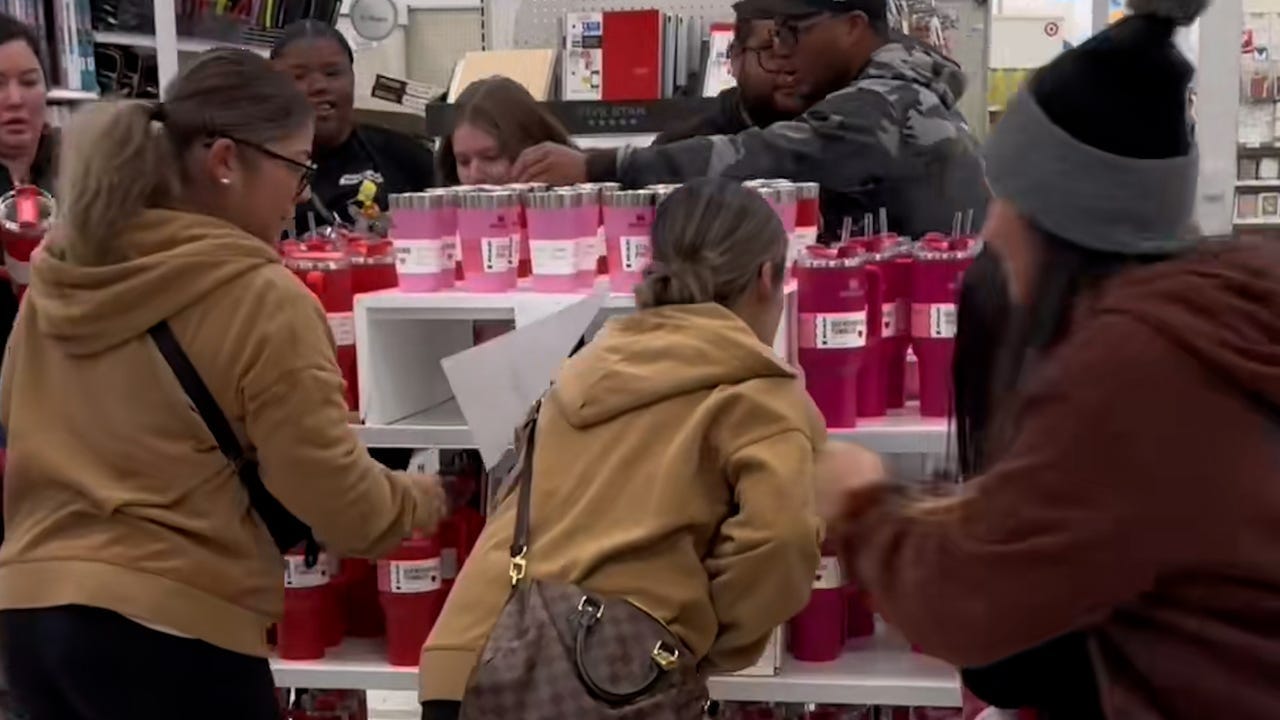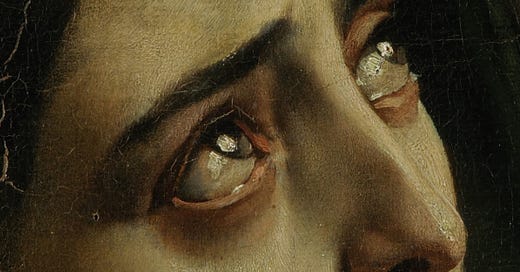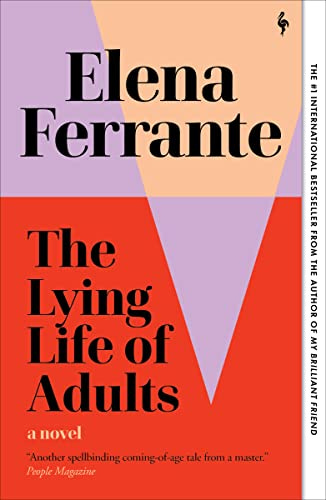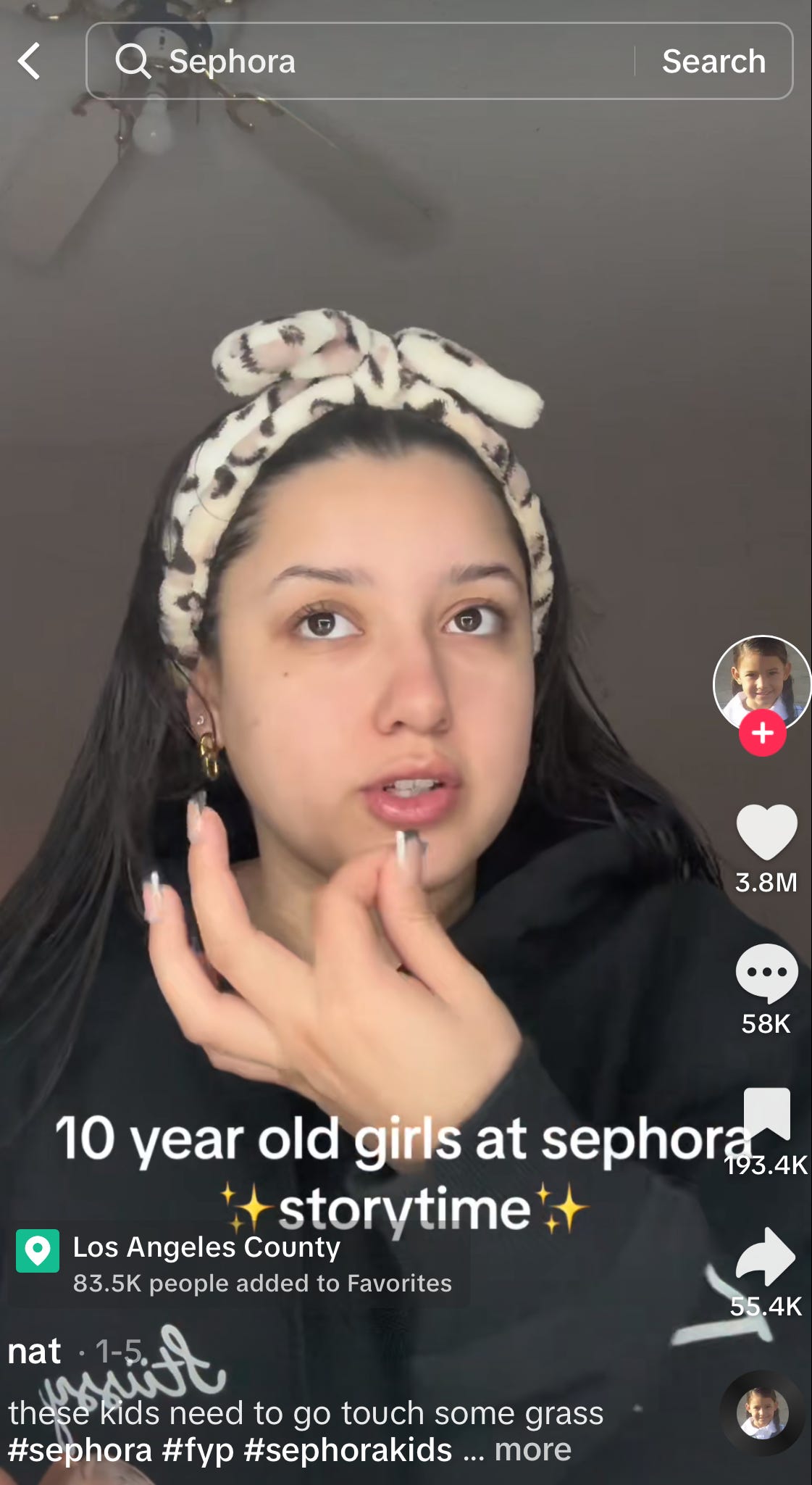I read one book last year.
Aside from reading articles and highlighting scanned book chapters, which were mandatory for class or for radio prep, I read The Lying Life of Adults by Elena Ferrante for my own pleasure and I think about it weekly. Ferrante leads the reader to early 1990s, in Naples, in its privileged and industrial neighbourhoods. A twelve-year-old Giovanna lends us her reflections and her thought processes; eclectic, naive and often times, aloof and disappointed. Throughout the book, the young girl’s perception of her family erodes away from the idea of sacredness and perfection. Ferrante’s choice of making the reader discover truths that had been neatly concealed through the young protagonist reminded me of how distressing girlhood can be.
At Giovanna’s age, the world you once knew can gradually or abruptly crack and fissure as it stretches beyond your family unit or beyond the exemplary condition it pretends to be in. You start sensing the gaps in some of your friends’ stories, looking for mentors who do not live in your home, seeking sanctuary in battlefields. Words sting a little more as you finally have the capacity to correctly remember and the memories latch onto you in the later hours.
The Lying Life of Adults begins with Giovanna recalling the moment her father called her ugly. Uttering, he relates her looks to his sister, Vittoria, a woman Giovanna had never heard of. The book expands as the protagonist goes from finding a photo of both her father and his sister, with her face scratched off, to actually seeing her, understanding that “Vittoria seemed […] to have a beauty so unbearable that to consider her ugly became a necessity.”1 Fully engaging with Vittoria’s world and overwhelmed with excitement, pleasure and bewilderment, that sudden immersion introduced Giovanna to lying and its art-like form, adapting it for the people who’d be on the receiving ends of her falsehoods: “lies, like literature, cleave to different genres, each with its own conventions of language.”
The recent TikTok discourse on girls as young as Giovanna, or even younger, hurrying into Sephora stores and frantically reaching for creams and lotions to soothe, smooth, cover or repair the imperfections they perceive amuses me. Women, myself included, spent the entirety of the last year hectically reverting back to girlhood through whatever possible measure and attributing the same prefix to everything to accompany our delusions: girl math, girl dinner, girl hobby (which seems to be a more recent one). It was Barbie, it was pink, it was clipping bows on everything and anything. Just like the young girls in Sephora stores, Giovanna is in constant and desperate pursuit of feeling whole, of achieving some sort of completeness portrayed by the adults around her, a wholeness that isn’t real, that isn’t true. Giovanna exhibits neediness and relentlessness because it is difficult to be a child or to be a young girl. It is additionally difficult to have parents who, in her case, consistently lie but pretend to be above it, to have “friends” who have predatory behaviours, to have family act in ways you’re too young to understand. We romanticized girlhood so much, we forgot its messiness and its insatiableness. The desire to feel seen, heard (or to achieve a state of wholeness that is showcased by those you idolize) goes beyond obedience and our expectations of girls to master complete restraint definitely is telling. Girlhood is such an intricate time that womanhood is sold to girls as the solution.
And over the years, what solution has been sold to young women? Trends! Clean girl aesthetic (which we could call TikTok’s version of the ‘no makeup’ makeup), the Mob-Wife aesthetic (which we could call TikTok’s altered version of the dark feminine, whatever that is), latte makeup (which seems to be a bronzed look), strawberry makeup (which seems to be a blush-y look). Interestingly enough, these are all reproduction of one another, unoriginal and always attempting to reinvent what has been done before, guaranteeing the refinement of our performance of womanhood. Fredric Jameson calls the reinvention of unoriginality as pastiche, which “removes the capacity of original thought from the creative discipline”.2
By just playing into the consumerist feminine pastiche, which would be to constantly partake in these predictable aesthetics, and constantly buying the products necessary to achieve the next promise of accomplished womanhood whether it be through fashion or makeup, we can understand how Sephora stores being plagued by girls and Stanley cups being snatched off Targets’ shelves by grown women are perhaps two sides of the same coin. We are just a few years apart, buying our way to fulfillment. In On Feminism in the Age of Consumption, Nicki Lisa Cole and Alison Dahl Crossley explain that we are linking “women’s independence [and dare I say, emancipation] to consumption.”
This eternal pursuit to fulfillment and wholeness as women only affirms the shortcomings of the digital feminine experience, it only affirms our current state of depthlessness. As theorized by Jameson, depthlessness denotes “not a coincidence but a consequence, the effect of years of—depending on the discipline—obstructing, flattening, cutting off, or hollowing out.” And the meaning of womanhood is being flattened out, hollowed out online and offline. While I can’t fully describe what it is to be a woman, depthlessness speaks to “the extinction of depth, not its nonexistence”. This eternal pursuit to fulfillment and wholeness through consumerism is what is making us, as women, as people, go extinct.

The theme here, for Giovanna and for us, is the lies we tell and/or believe in and the frenzied ways we inherit by navigating the state of being a girl or a woman. We complain on girls wreaking havoc in Sephora stores while doing the same in Targets for Stanley cups. We complain about tweens no longer mingling in stores like Claire’s, forgetting we invited ourselves onto their digital space. TikTok initially being a children’s app, anticipated our arrival as our attention migrated to newer technologies and features, and the companies followed shortly after. We settled there, comfortably, as TikTok refined their tools, catered to our needs and cashed in the money corporations were willingly paying to advertise and market to us, adults, and specifically here, women. Now, as we share TikTok as a common space, and as
mentioned it in a recent TikTok, as women share online their fears of aging, of growing older and of looking like it, girls are listening in and taking notes.As
points it out in Have Kids Always Grown Up This Fast?, “young girls’ obsessions with womanhood and young women’s obsessions with girlhood, while stark at present, aren’t so dissimilar to behaviors that past generations have exemplified.” However, this perpetual dance of 13 going on 30 and 30 going on 13 never ends and when are limbs get weak, our vision becomes blurry and our head is plagued by a throbbing headache or we experience sickening vertigo, can we actually sit down and think about what womanhood is when we don’t try to escape it?Ferrante, Elena. 2019. The Lying Life of Adults. Italy: Edizioni e/o, 46.
Wilson, Lisa Tamara. 2000. “The Cultural Logic of Postmodernism as Critiqued by Fredric Jameson: The Social Transformation of Landscape Architecture” Masters thesis, The University of Guelp, 24.







I loved this so much!! The point about our romanticisation of girlhood taking the actual teeth out of the experience and how it really felt to be a girl!! It’s something I’ve been thinking about a lot lately and you articulated it so well
"Girlhood is such an intricate time that womanhood is sold to girls as the solution."---WOW, i love this line. We spend all of girlhood trying to be women, forgetting the beauty in just being young, whatever that looks like, in all its awkwardness and in between places. It's sad women aren't allowed to truly exist in their youth, always being pushed toward adult roles. But I think its beautiful we are finding ways to reconnect with girlhood and femininity as women! Beautifully put and very eye opening to me!